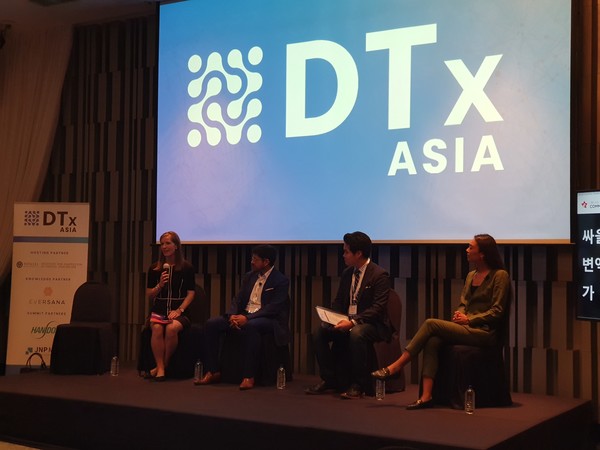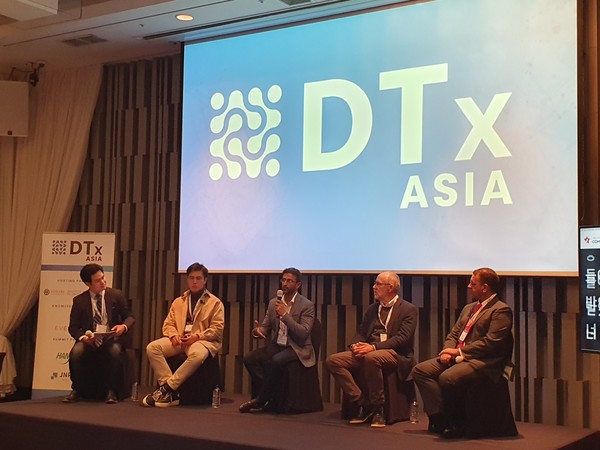DTx Asia, a conference inviting healthcare companies specializing in digital therapeutics (DTx) to engage in dialogues surrounding the establishment of the industry in Asia, launched at the Novotel Ambassador Hotel in Gangnam, Seoul on Tuesday.

The DTx conference also has a series in America East and West, and Europe but this is the first edition of DTx Asia.
The first DTx Asia was originally scheduled to be held in Singapore but the venue changed to Seoul thanks to Korea’s large budget allocation to DTx and recent digital health applications (DiGA) reimbursement plans, according to Christopher Goy, managing director of GreyGreen, the event organizer.
He quickly added that subsequent DTx Asia events will be launched in other Asian countries to continue expanding the market.
Danny Kim, Head of WELT USA, delivered opening remarks to emphasize the growing interest in Korea for DTx.
“In August 2020, the Korean government and the Ministry of Food and Drug Safety issued a guideline specifically for DTx,” said Kim. “Additionally, the Health Insurance Review and Assessment Service (HIRA) is going to be formally publishing a guideline for the reimbursement of DTx, so these are some exciting developments to look forward to.”
The morning’s first panel discussion dived into how DTx companies plan to innovate healthcare in the APAC region with speakers from the Digital Therapeutics Alliance’s Chief Policy Officer Megan Coder, Wellthy Therapeutics CEO and Co-founder Abhishek Shah, Click Therapeutics Director Sarah Jackson joining Welt’s Danny Kim on stage.
Coder stressed the importance of clearly defining and categorizing DTx as this later impacts the regulation and commercialization options.
Speaking about some evolution in the field, Kim said the first wave of DTx operated on the principle of providing a standardized model of care for everyone.
However, the second wave of DTx is becoming more personalized by encompassing the four key areas of health -- diagnosis, treatment, management, and prediction, he said.
Shah chimed in explaining how DTx can be used to facilitate heath equity.
He said digitalization can enable adjunct therapies, combination and companion therapies already proven to work, to drive outcomes in multiple indications not just as stand-alone but also as companion therapies and not just prescriptive but also non-prescriptive medicines.
Regarding access to these DTx, Jackson stated that a seamless ecosystem in the DTx field still needs to be developed and can start by translating lessons from traditional medicines into digital therapies.

The later panel discussion compared commercial infrastructure for DTx.
CinoCore’s CEO Kaishen Chen shared that his company follows the traditional pharmaceutical marketing strategy targeting physicians in different provinces who then promote the product to clients.
Twill’s Chief Strategy Officer Christopher Wasden introduced a different strategy used in the U.S. which directly markets products to patients, not physicians.
He quickly noted that although this scheme works well in the U.S., it will need some moderations to be adopted in other countries as reimbursement schemes and health systems differ.

